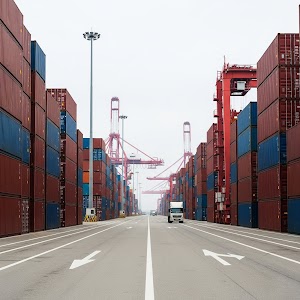The Relationship of the Incoterms Rules in Documentary Credits Transaction

Incoterms rules and documentary credits are integral components of international trade, working together to facilitate smooth transactions by defining responsibilities and providing financial security for buyers and sellers.
1. Overview of Incoterms Rules
The Incoterms rules, published by the International Chamber of Commerce (ICC), establish a standardized framework for defining the rights and obligations of buyers and sellers in international contracts for the delivery of goods. These rules:
- Clarify who is responsible for specific costs, risks, and tasks associated with the transportation and delivery of goods.
- Serve as a key reference in negotiating international sales contracts to allocate responsibilities for shipping, insurance, and customs clearance.
2. Overview of Documentary Credits
Documentary credits, also known as letters of credit, are financial instruments issued by banks to guarantee payment to the seller upon presentation of specified documents. These credits:
- Ensure financial security for both parties by guaranteeing payment if certain conditions are met.
- Serve as a safeguard for sellers against non-payment and for buyers against non-performance.
3. Complementary Relationship Between Incoterms Rules and Documentary Credits
The relationship between Incoterms rules and documentary credits lies in their complementary roles:
- Contractual Basis: Specific Incoterms rules agreed upon in the sales contract form the basis for issuing a documentary credit.
- Responsibility Alignment: Clear alignment between the Incoterms and the documentary credit ensures consistency in shipping, insurance, and delivery terms.
4. Key Considerations for Harmonizing Incoterms and Documentary Credits
To avoid inconsistencies and potential breaches of contract, parties must ensure the following:
- Compatibility: The buyer's instructions to the issuing bank for the documentary credit must align with the terms of the sales contract.
- Seller's Review: The seller should review the documentary credit terms well in advance of handing over goods for carriage.
- Avoiding Conflicts: Any discrepancies between the requirements of the documentary credit and the sales contract should be resolved to prevent payment issues.
- Proper Transport Documents: The buyer should instruct the bank to require a transport document that controls the disposition of the goods, ensuring the seller cannot divert the goods after being paid.
5. Conclusion
While Incoterms rules define the contractual obligations related to shipping and delivery, documentary credits provide financial security by guaranteeing payment upon meeting specific conditions. Together, these tools promote clarity, efficiency, and trust in international trade transactions, protecting the interests of both buyers and sellers.







Comments
Post a Comment